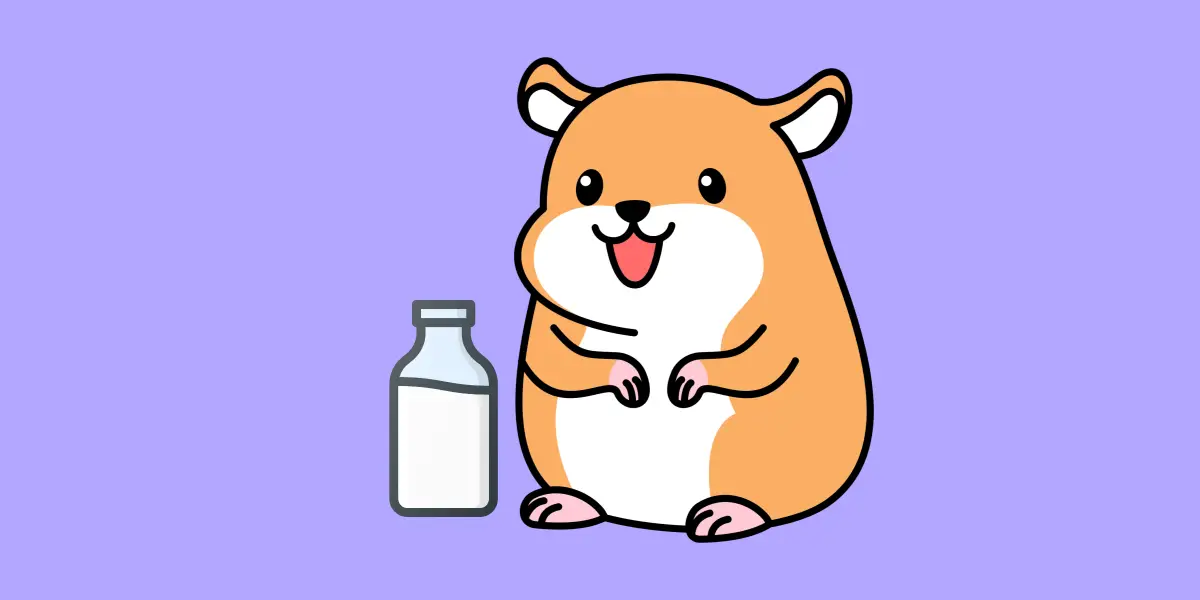Milk plays an important role in the growth and development of both adults and children. It contains a combination of nutrients with unique interactions which contribute to optimal health. Due to this, you may wonder if it’s a good choice for your health-conscious hamster.
The answer to this important question is, in short – no. While milk is not toxic to hamsters, there are a number of risks associated with feeding your hamster milk that you need to be aware of.

Read on to get the health information about milk and find out whether or not it’s a good fit for your hamster.
Contents
Milk Nutrition Information
One cup of cow’s milk will give you roughly the following amounts of vitamins, minerals, and other compounds:
- 2.4 grams total fat
- 12.2 milligrams cholesterol
- 107.4 milligrams sodium
- 366 milligrams potassium
- 12 grams carbohydrate
- 13 grams sugar
- 8 grams protein
- 2 percent vitamin a
- 30 percent calcium
- 5 percent vitamin b-6
- 18 percent cobalamin
- 6 percent magnesium
As you can see, milk provides all the nutritional information for humans, but one fundamental question remains…
How Much Milk Can You Give a Hamster
The amount of milk you can give a hamster depends largely on the age of the hamster. When a mother dies and can no longer take care of their newborn pups, they need round the clock care, as well as milk. However, the type of milk they require is similar to that of their mother, and they should not be given cow’s milk. In comparison, adult hamsters can drink a small amount of cow’s milk.
How Often Should You Give Your Hamster Milk
The only time you should be giving your hamster cow’s milk is if they get a cold, and in this case you should try to give them a warm drink of skim milk with honey. Despite this, you should only be making sure your hamster has a few mouthfuls, and they should be administered in a way in which you can observe how much they are ingesting. If your hamster doesn’t want to take the milk from an eyedropper, you can pour a small amount on a spoon where the hamster can drink from instead.
What Risks Are Associated With Giving Your Hamster Milk
The main risk associated with giving your hamster milk, is that different types of milk contain different levels of fats and protein to those found in a hamster’s own milk. These milks could cause problems with your hamer’s diet, leading to diarrhoea or digestion problems. You should consider all milk products like treats, and should only be given in small amounts.
Hamsters are known for hoarding their food, and they require a clean and dry cage in which to live. A risk to your hamster that is not associated with their diet is if their cage becomes dirty. If you let your hamster drink milk, and droplets get spilled in their cage, these could go moldy and cause a possible illness in your hamster.
Can Hamsters Have Milk – Final Thoughts
Milk is beneficial to humans, but should only be given to your hamster if they are unwell, and you should always speak to your vet first just to make sure it is the right course of action.
